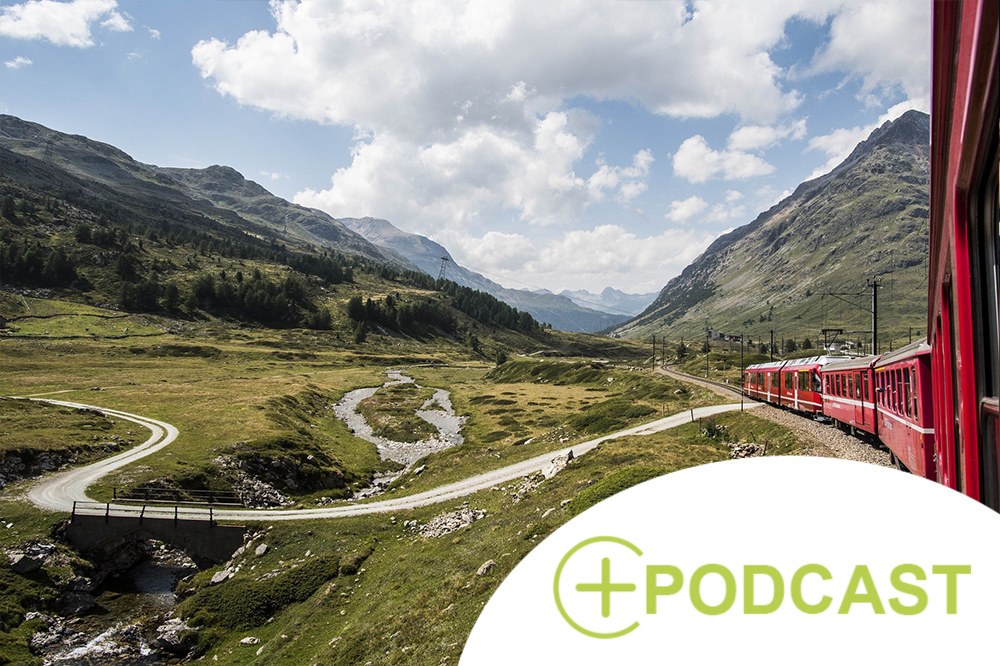News
Mobile in the Alps
The pandemic has made it more difficult to set off for distant worlds, but there is a noticeable trend towards more regionality and sustainability. Since 2018, CIPRA’s Yoalin project (Youth Alpine Interrail) has been encouraging young people in the Alps to explore their immediate surroundings more consciously – and to do so using public transport. As initiators of the project, CIPRA’s Youth Advisory Council (CYC) and CIPRA are committed to climate-friendly and affordable travel in the Alps. The members of the CYC are also working on the idea of an Alpine-wide ticket (AlpTick), because sustainable mobility is fundamental to climate protection.
Eight countries, 20 years, 5,000 kilometres
Soft forms of tourism such as long-distance hiking have gained in importance, not least because of the corona pandemic. Against this background, CIPRA is evaluating the future potential of the Via Alpina together with Alpine associations, national parks, tourism organisations and municipalities. “In order to secure the continued existence of the transalpine Via Alpina, we want to redesign the red trail”, explains project manager Jakob Dietachmair – just in time for the 20th anniversary of the transalpine long-distance trail. “This includes the routing as well as the accommodation and stories along the way”. CIPRA is receiving support for this from the Austrian climate protection ministry.
By bus, train, bike or e-bike to work
Tens of thousands of people commute to work by car every day in the Alpine Rhine Valley, with over two thirds of them living no more than 15 kilometres from their workplace. Yet less than ten percent of them travel to work by bike, train or e-bike. In the three-year Interreg project AMIGO, pilot companies are testing individual solutions with experts from health research, mobility management and behavioural economics. CIPRA has laid the foundations for this with projects on cross-border commuter mobility. This includes a toolbox for businesses as well as political recommendations.
Good examples of visitor management that go beyond sustainable mobility can be found on the interactive Alpine map at specialps2.cipra.org (de, fr, it, sl).
Sources and further information:
www.cipra.org/de/amigo (de, en, fr, it, sl), www.cipra.org/de/pemo (de, fr, it, sl) www.cipra.org/de/via-alpina (de, en, fr, it, sl), www.cipra.org/de/yoalin (de, en, fr, it, sl), www.cipra.org/de/alptick (de, en, fr, it, sl) www.cipra.org/de/specialps2 (de, en, fr, it, sl)







